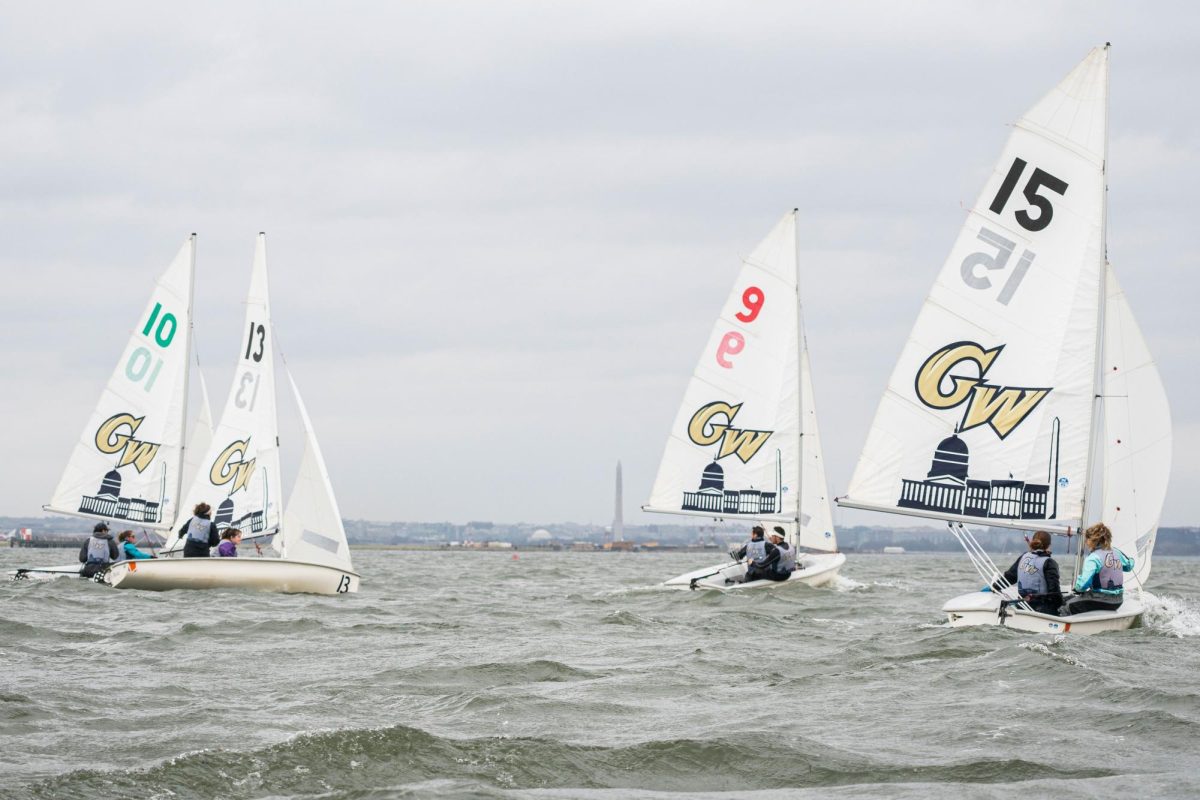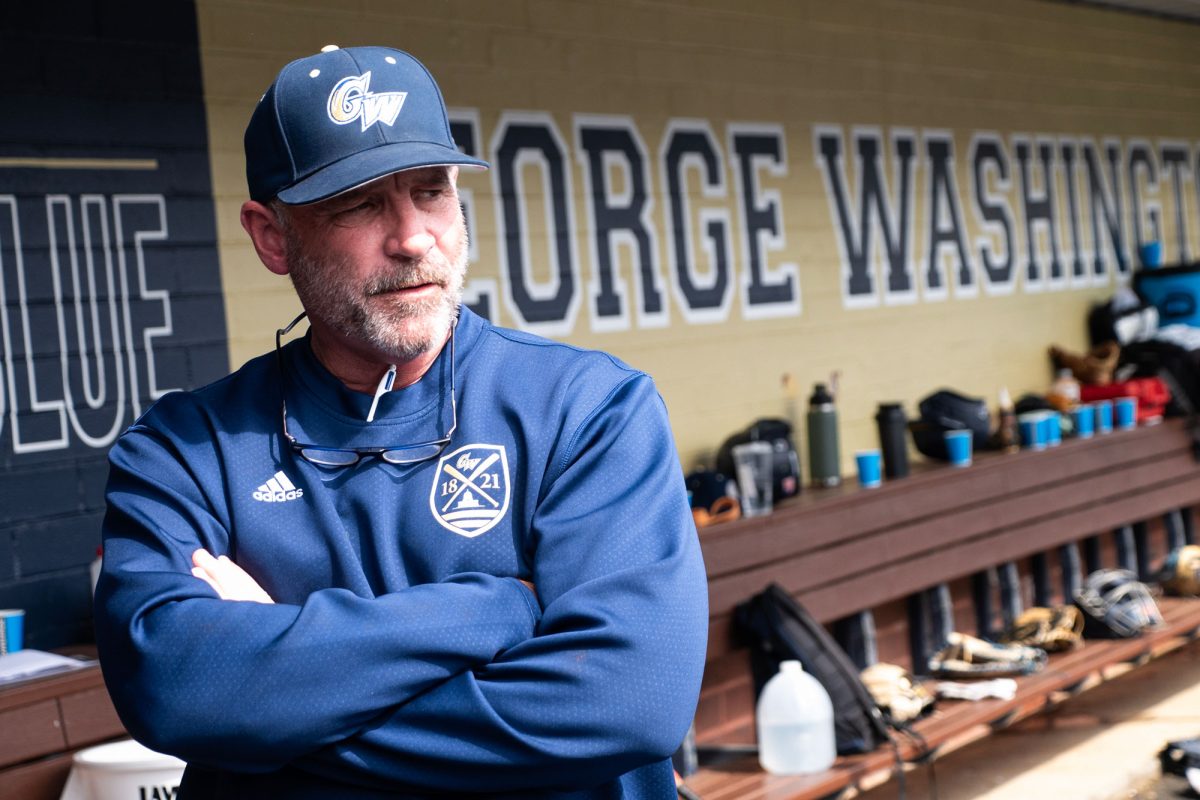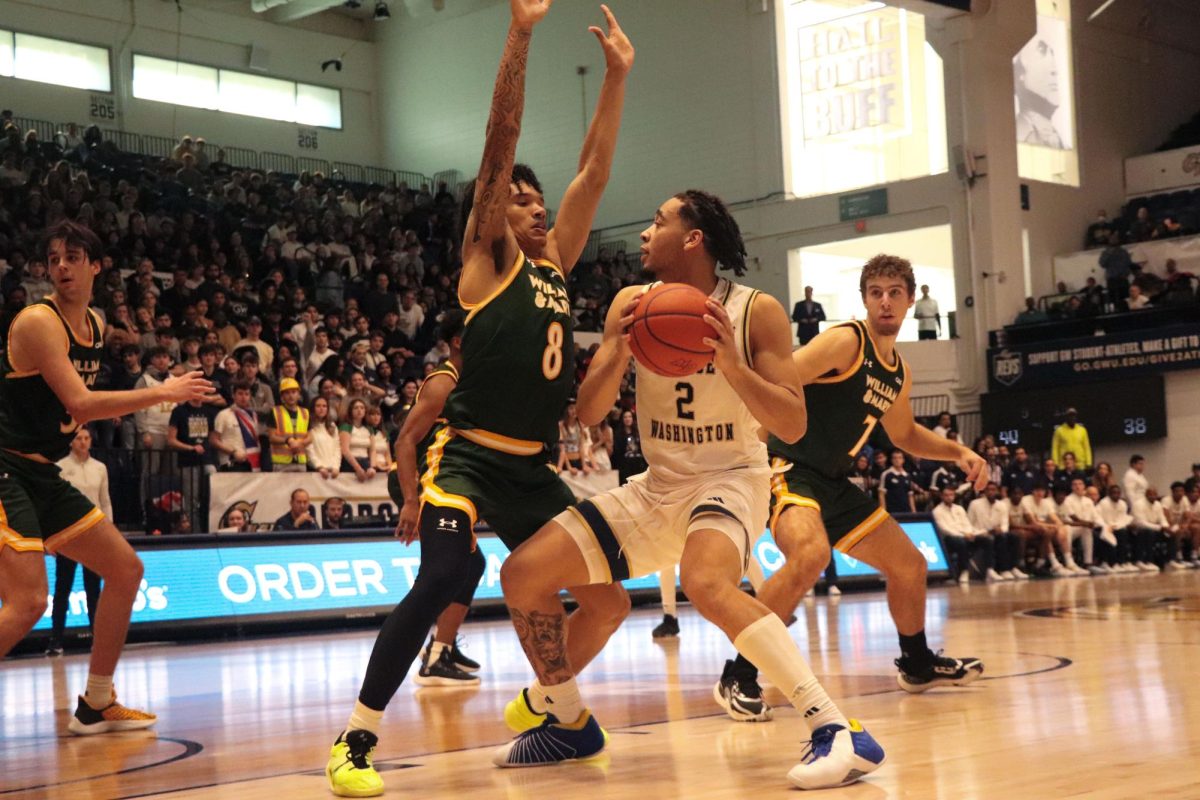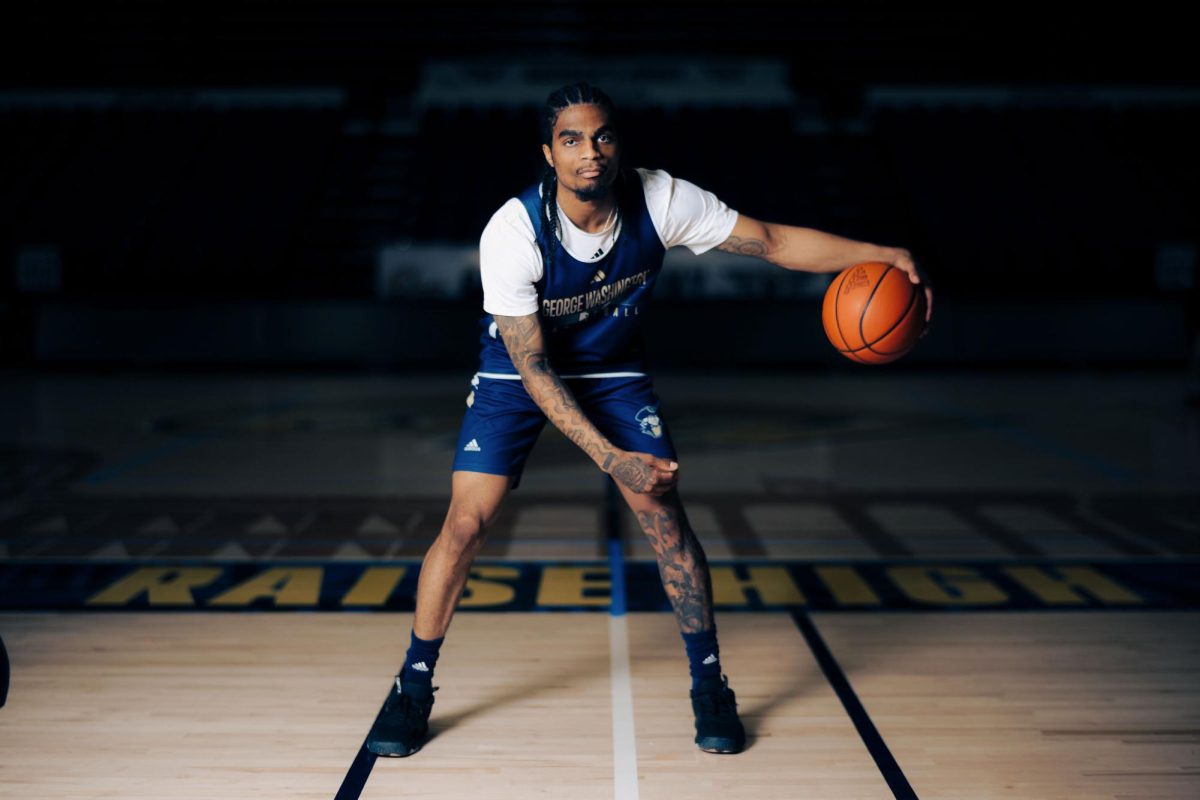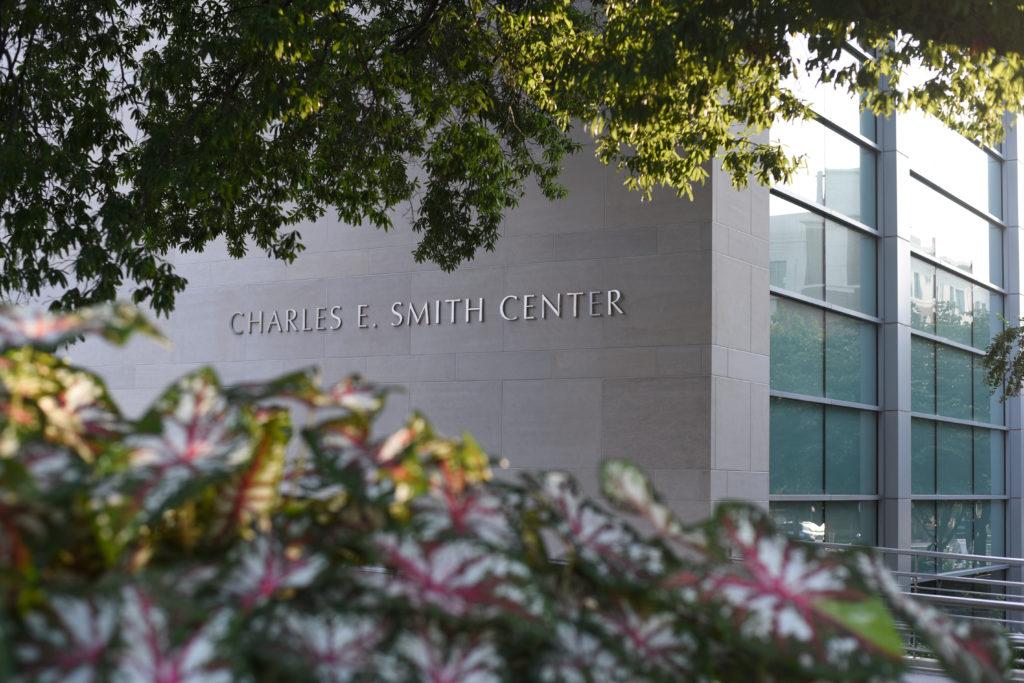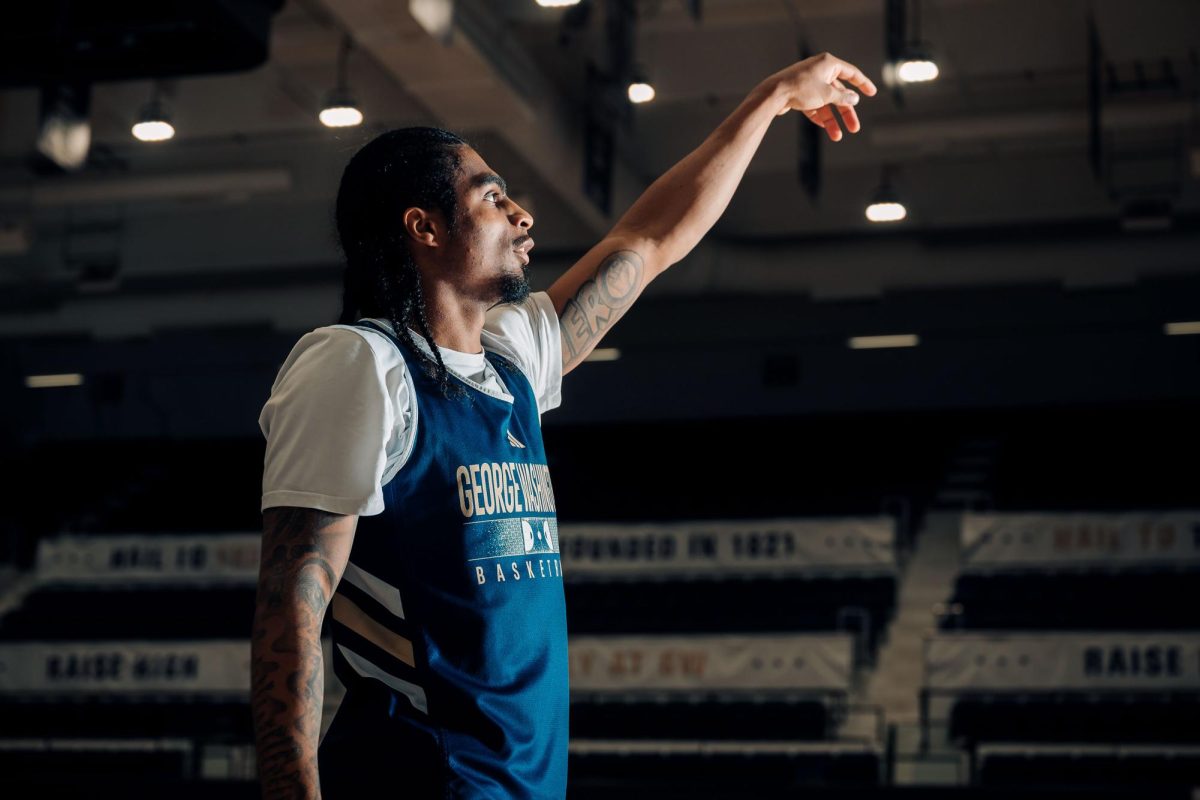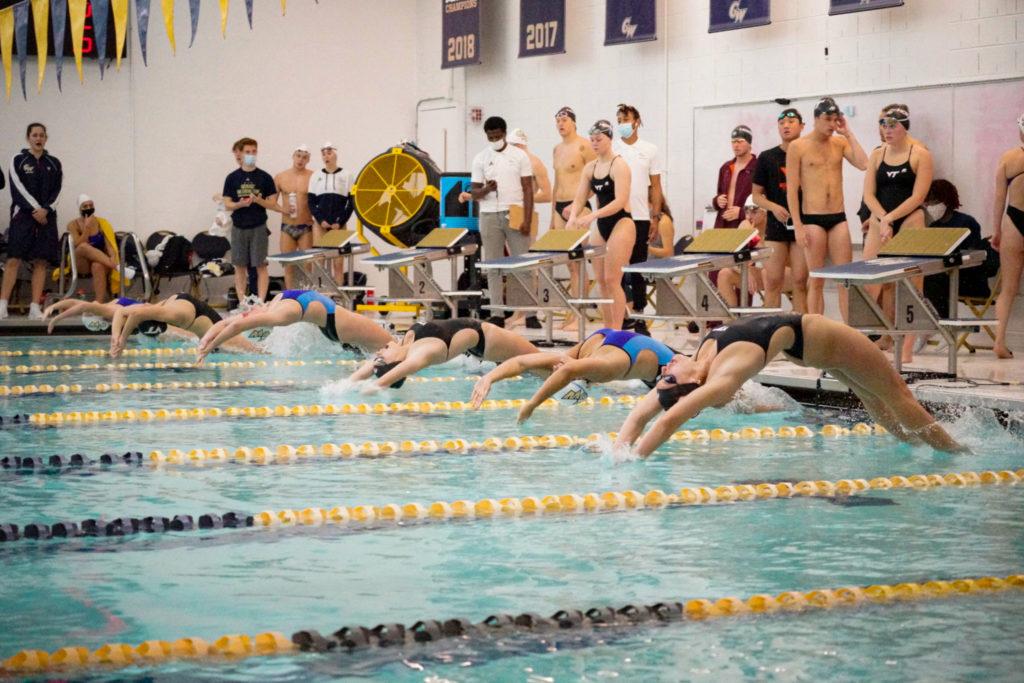Navigating the winds and waves of the Potomac River, club sailing has continued to find success on the water despite University officials removing the team’s varsity status in 2021.
The University established a varsity sailing program with both women’s and co-ed teams in 2012 after a multiyear push to prove it could find success on the national level. But less than 10 years later, officials cut the program due to COVID-19 headwinds, forcing the student-athletes to run the team themselves.
In 2013, leading up to the team’s second year as a varsity program, the team launched a “Raise High the Sails” campaign in an effort to propel the sailing program into becoming a top Inter-Collegiate Sailing Association program. A year later, the University announced a successful $180,000 fundraising campaign that allowed them to build an 18-boat fleet.
In April of 2019, the women’s team, ranked among the top 10 in the country, competed in their fifth-consecutive ICSA national championship to cap off half a decade as one of the University’s winningest programs.
During the 2019-20 season, the team’s last with varsity status, the Revolutionaries opened the year with several medalists at the Laser South and Navy Women’s regattas hosted by Navy. A week later, the team clinched gold at the Riley Cup hosted by Old Dominion in Norfolk, Virginia, beating out 18 other teams. They closed their season finishing eighth out of 10 in the St. Mary’s Team Race in early March.
Nearly six months after the season concluded, officials cut the sailing program along with six other varsity sports, citing the COVID-19 pandemic as a reason to reduce costs.
Officials said there were nine criteria they considered in their review of which sports to cut, including history of the sport at GW and NCAA Division I sponsorship. Sailing does not hold NCAA status but rather is governed by the ICSA.
During the squad’s first season as a club program in the fall of 2022, sailing emerged as the top-ranked club team in the ICSA rankings and earned an invitation to the national championships. Yet, in the following years, the team of 20 has struggled to stay at the top while competing without school funding and without a head coach.
Despite occasional successes, the team has fallen in national rankings and consistently places near the bottom at meets.
In the ICSA rankings this spring, the women’s team has bounced between No. 19 and 20, while the co-ed team fell from No. 9 on the Feb. 15 rankings to No. 20 on March 6.
The coed team placed last in two meets in March, finishing ninth out of nine teams in the Aaron Szambecki Team Race and fifth out of five in the D.C. Team Race, competing against four varsity teams in the latter and seven in the former.
Last weekend, the women’s team traveled to Geneva, New York, to race in the Middle Atlantic Intercollegiate Sailing Association Spring Women’s Fleet Championships against both club and varsity programs, placing seventh out of 15. Cornell, a varsity program, placed first.
The women’s team placed first at the Wick Trophy Women’s Event in New London, Connecticut, on Sunday while competing against varsity teams like Brown and Tufts.
Senior skipper Oscar MacGillivray said he worries about the team’s future due to low fundraising returns.
“It’s crazy because we’ve had a lot of good moments this semester, last semester where we’re beating all these varsity teams,” MacGillivray said. “But when it comes down to certain things and certain events, the coaching and the lack of funding shows.”
Club Sailing requested a budget of $49,173 from the Student Government Association in hopes of securing enough funds to pay a coach’s salary, according to SGA allocation documents, but ultimately received $8,460 from the University for their current year. Rowers pay dues of $650 each semester, with a full-year membership costing $1,300. Annual marina rental expenses amount to approximately $26,000 to $27,000.
The team stays with alumni or current members when possible, and the team covers hotel stays when needed. Members pay for their own travel, food, expenses and sailing gear, costing more than $700 annually, accounting for varying equipment required for changing seasons.
“It’s a pretty high buy-in rate, but we do the best we can to minimize costs,” junior and club President Lexa Lee said. “We do that by taking care of our boats to make sure that things don’t break and minor problems don’t become major problems.”
Sophomore Eva Wieting said the team’s student-run status has not presented a major issue for the team but forces the executive board to do a “substantial” amount of work to get them ready to race.
“We’ve been doing our best to use the school resources that we do have,” Wieting said. “But, it has made it trickier. We don’t have a coach, which is a huge deal for us.”
Wieting said the team gets help from alumni and sailing coaches in the area, operating a website that allows former GW sailors to sign up to help out at practices and regattas. Georgetown’s team, which has varsity status, practices in the same marina, and Wieting said the Hoyas’ coach will sometimes provide assistance.
The team finds sailors with previous experience by attracting both those who were on high school teams and those who sailed casually growing up and want to re-enter the sport. Lee said she often locates prospective students through the team’s recruitment chairs or by athletes approaching team members directly and sharing previous experiences. Interested sailors then compete in tryouts, with the best sailors ultimately offered spots on the team.
Lee said that being on the team with athletes who were recruited to the varsity program has helped motivate her to reach a higher level and take a leadership role within the club.
“It made me want to work harder,” Lee said. “Honestly, to be around all these people who knew so much about this sport and just put so much time and energy into it. It made me so much better.”
Ben Spitalny and Sandra Koretz contributed reporting.


